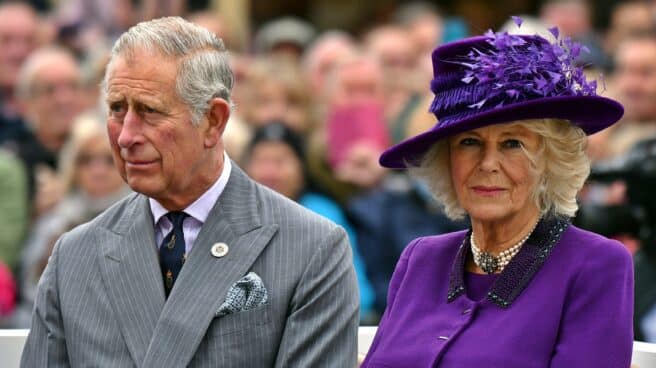

Charles III of England and his wife Camilla, queen consort.
Protests against pension reform in France, where the most violent day took place on Thursday, forced King Charles III of England to change the agenda. He was due to arrive in Paris on Sunday for his first state visit as a monarch. From France, he was going to leave for Germany on Wednesday.
In a statement, the Elysee Palace announced that the visit was postponed by decision of the French and British governments after a telephone conversation between the English king and French President Emmanuel Macron. The next mass mobilization is scheduled for Tuesday the 28th, when Carlos III was still going to be in France.
The Élysée has indicated that it hopes to receive the king “on terms consistent with our friendly relations”. He added that the visit would be rescheduled “as soon as possible.” The strikers refused to roll out the red carpet and participate in the preparations for the visit.
Macron and his wife Brigitte were to host a banquet for King Charles and King Camilla at the former royal palace in Versailles. On Tuesday, King Carlos III planned to travel to Bordeaux, where he will open a British consulate and visit an organic vineyard. Bordeaux became the scene of one of the most spectacular acts of vandalism: the radicals burned down the entrance to the town hall.
Buckingham Palace said in a statement: “The state visit of the King and Queen Consort to France has been postponed. Their Majesties look forward to visiting France as soon as dates are found.”
More than 450 protesters were arrested on Thursday in demonstrations involving more than a million people, 3.5 million according to unions, protesting against unpopular pension changes that raised the retirement age from 62 to 64. The law was approved after the government passed two votes of no confidence, one of them with just nine votes.
In a TV interview last Wednesday, Macron justified using article 49.3 of the constitution to approve the reform without a vote in the National Assembly, as he sees it as a significant change given France’s aging population. “We are a great country, but an aging people,” he said. He condemned the violence and assured that he was acting “in defense of the national interest”, although he was aware that this was an unpopular measure.
Source: El Independiente